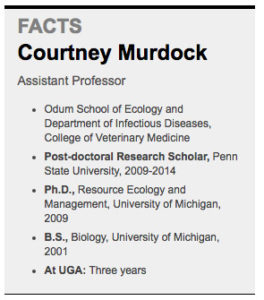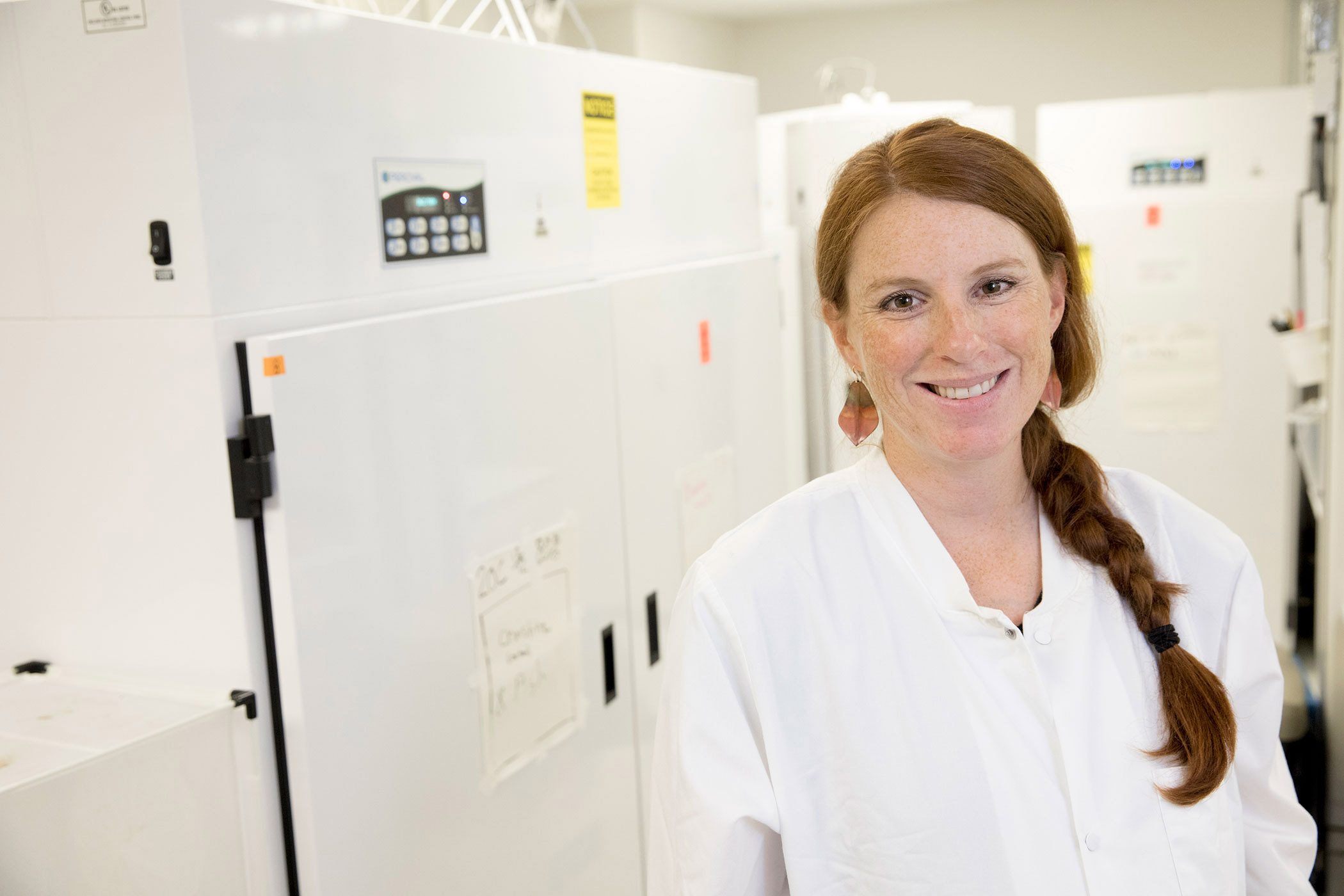Courtney Murdock was well on her way to becoming a veterinarian; as a pre-vet student at the University of Michigan she majored in biology and volunteered at a small animal hospital. But then she spent the summer before her senior year working at the university’s biological field station.
“I learned about general ecology and field mammalogy, and by the end of that summer, I knew I wanted to study ecology in graduate school,” she said.
For her doctoral work, also at the University of Michigan, she researched avian blood parasites, becoming interested in the ecology of disease transmission. That led her to Penn State University where she spent five years as a postdoctoral research scholar studying the ecology of disease vectors, the living organisms that carry and transmit diseases.
 Now Murdock has come full circle. In 2014 she joined the faculty at UGA as an assistant professor with a joint appointment in the Odum School of Ecology and the College of Veterinary Medicine infectious diseases department.
Now Murdock has come full circle. In 2014 she joined the faculty at UGA as an assistant professor with a joint appointment in the Odum School of Ecology and the College of Veterinary Medicine infectious diseases department.
Murdock’s research program is focused on the environmental drivers of disease transmission and the ecology of vector-borne diseases. She is particularly interested in two types of diseases that are transmitted by mosquitoes: human malaria and arboviruses, which include dengue and Zika.
She and her group combine lab and field experiments with computer modeling to generate predictions about disease spread and to evaluate disease control strategies in the context of changing environmental conditions.
As the recent outbreak of Zika demonstrated, the stakes are high.
“Often mosquito interventions are the only way to mitigate these diseases,” Murdock said, which is why understanding how variables like temperature, rainfall and land use affect mosquitoes’ capacity for transmitting disease is so important.
People want to learn about these issues. They want to be engaged. — Courtney Murdock
Murdock’s research interests inform her teaching, which includes an upper-level undergraduate/graduate course on the population biology of infectious diseases. A participating faculty member in the Infectious Disease Ecology Across Scales interdisciplinary doctoral training program, she also enjoys teaching general ecology for undergraduates.
“It broadens your thinking,” she said. “And working with students with different skill sets and backgrounds has helped me become a better mentor.”
Murdock’s teaching goes beyond the classroom. She is currently developing an Athens-based outreach project to inform people about the risks—and how to mitigate them—of living with mosquitoes, and she recently taught a course on Zika for the UGA Osher Lifelong Learning Institute.
“People want to learn about these issues,” she said. “They want to be engaged.”
The kind of diversity she values in her students is something Murdock also appreciates about her faculty colleagues.
“The appeal of UGA was the joint position with the College of Veterinary Medicine and the Odum School, and having access to so many renowned colleagues with different expertise than mine,” she said.
Murdock cited the Faculty of Infectious Diseases, the Center for Tropical and Emerging Global Diseases and the Center for the Ecology of Infectious Diseases as important resources that make UGA an ideal place for her to work.
“If you’re curious, ecology is a good field,” said Murdock. “It’s theory driven: you make hypotheses and design experiments to test. There are a lot of major problems that can benefit from an ecological perspective and integration from other fields, like antibiotic resistance and urbanization. This is a great time, and a great place, to be an ecologist.”


